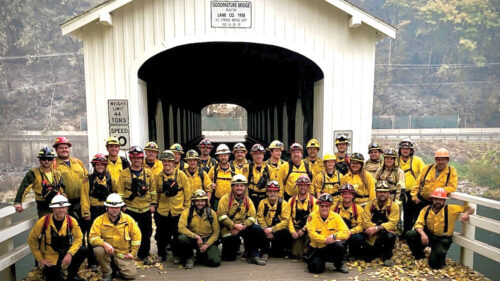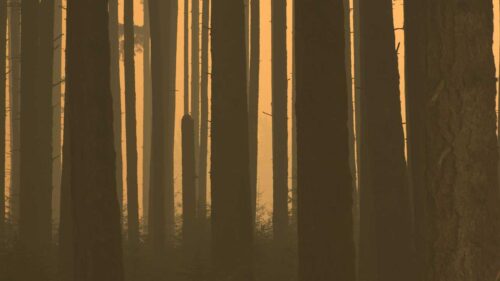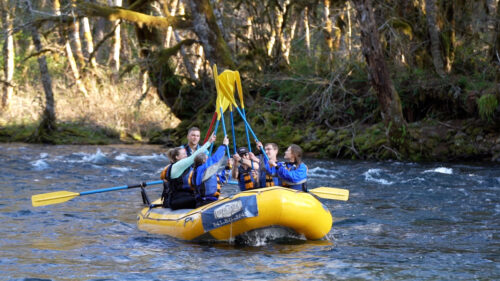Editor’s note: Face coverings (ages 5 and up) are required at all indoor and outdoor public spaces statewide, regardless of vaccination status. Learn more here. It’s also wildfire season — plan ahead and do your part to prevent wildfires.
In the days following the Almeda Fire in Southern Oregon, Juliet Grable struggled to come to terms with the devastation she’d seen. As volunteer firefighters with Greensprings Rural Fire District in the Rogue Valley, Grable and her husband, Brint Borgilt, helped battle the blaze as it ripped through the towns of Phoenix and Talent near Ashland along the Interstate 5 corridor.
“The magnitude of destruction is hard to comprehend,” Grable says. Just 24 hours after the Almeda Fire started on Sept. 8, more than 2,350 homes were burnt to ashes. It was just one of dozens of fires that started across Oregon that week. Some of the fires are still underway.
While Grable was happy to contribute to the emergency response in the Rogue Valley, she is quick to point out that local, state and national agencies led the massive effort to control the fire and were responsible for getting residents out of the densely populated area. “My husband and I played a really tiny role in this,” she says. “Our piece was a little part of a huge, all-hands-on-deck effort.”
Now that the Almeda Fire is out, Grable is listening closely as residents talk about how to rebuild, shelter the newly homeless and work to make sure their most vulnerable residents are not forgotten. “I’m really blown away by the resilience these communities are showing,” she says. “It’s quite moving.”
Grable says rebuilding will require many people to step up. It has already started, but it will take time. The Almeda Fire and others burning simultaneously have accounted for what’s likely to be one of the most destructive wildfire seasons in Oregon’s history. Fires burned through nearly 1 million acres, impacting national forest lands, parks, communities and neighborhoods. It has taken some time for the smoke to clear.
From housing and feeding evacuees to providing a refuge for displaced livestock and wildlife, here’s a look at the work of the everyday heroes, like Grable, who have been stepping up — showing grit, big-heartedness and true Oregonian spirit.
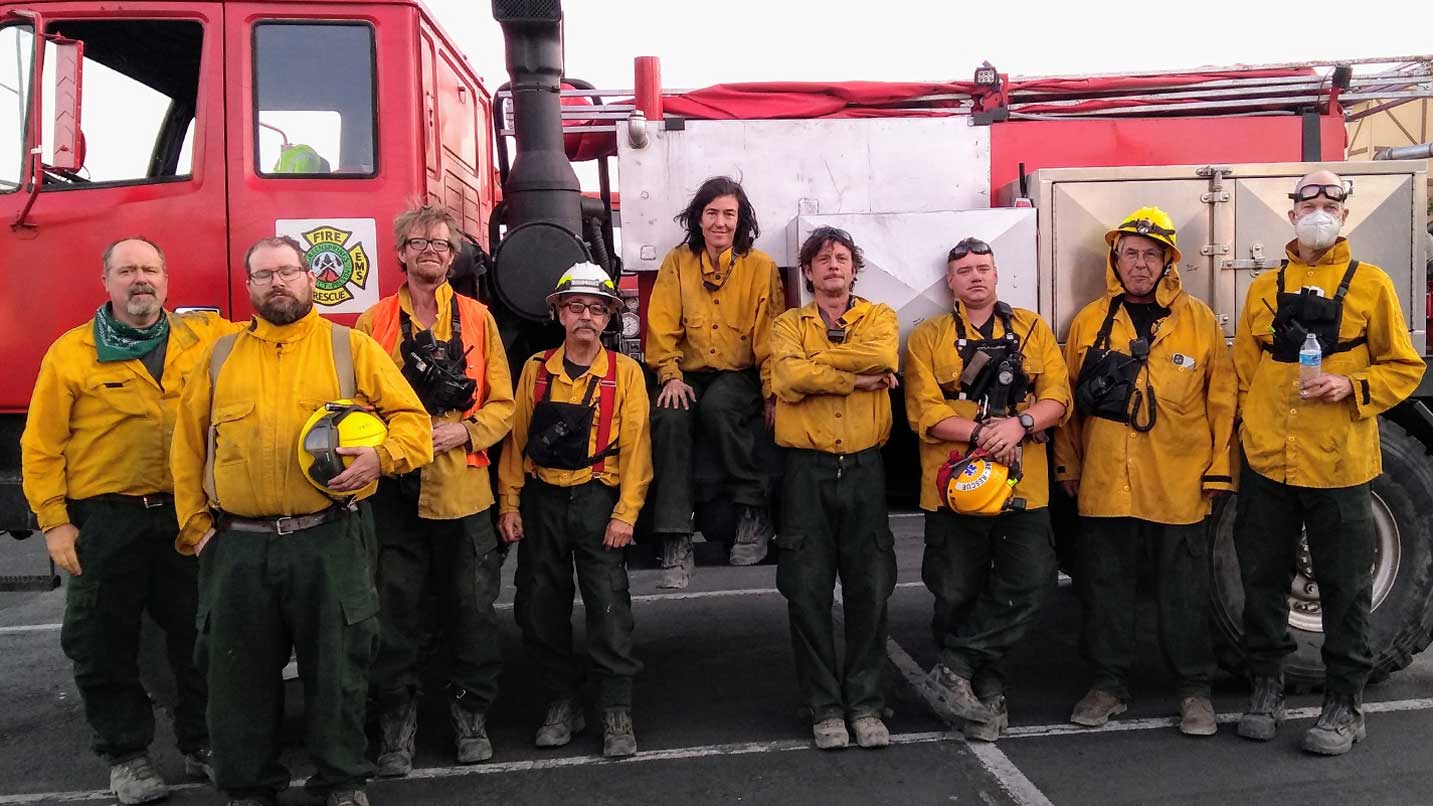
Calling All Cowgirls
Living in Corvallis, Katie Schrock did not see a fire close to home. But as owner of Western Insights Media and vice president for the Benton County Rodeo committee, Schrock was acutely aware that farmers and ranchers in the path of fire would be struggling to find a safe haven for their animals. “We have so many friends in our rodeo community, in our farm community and ranch community. I thought, what can I do to help?” she recalls.
As the Holiday Farm Fire raced into the forests and communities east of Eugene, Schrock thought about connecting residents with an animal rescue group called Cowboy 911 that had sprung up in Northern California during their wildfires in 2018. Deciding the group was too far-flung to help Oregon residents, Schrock created a local Facebook group called Cowgirl 911 in an effort to facilitate transportation of Oregon’s farm and ranch animals threatened by the wildfire.
In the first couple of days, Schrock found herself manually connecting animal owners with volunteers willing to drive animals to safe locations. Using Facebook and Google sheets, the process proved cumbersome and time-consuming as needs grew along with the fires. Then Amanda Blum, a Portland resident trained in disaster organization, offered to help and created a ticketing dispatch system. Within 24 hours, Cowgirl 911 had a system using a map with an overlay of the fire, locations of volunteer transporters and safe-harbor locations to match incoming requests.
“The way it worked, you could fill out your dispatch ticket and within 10 minutes you would have wheels on the road coming to help you,” Schrock says. Cowgirl 911 completed 40 requests within its first 90 minutes with the new system. The organization was able to ramp up further, training 30 volunteer dispatchers over Zoom on the first day and clearing 100 requests for help.
When the fire danger receded, the system helped take those same animals home. In the 12 days between Sept. 9 and Sept. 20 — when most of the state was urged to stay indoors due to poor air quality from the smoke — Cowgirl 911 helped move more than 25,000 animals in response to more than 217 requests. The Facebook group, which remains active for community building, has 19,000 members and counting.
Schrock hopes to organize a future disaster-planning webinar for animal owners with veterinarians. She’s also working on youth-hero recognition awards to honor young people who camped out at county fairgrounds to help tag, feed, water and care for sheltered animals during the fire.
“They didn’t get to have their county fair this year, and they were asked to set up overnight for this,” she says. “We had a kid who slept in a hammock so she could make sure every animal that came in was tagged. I really want to highlight them.”
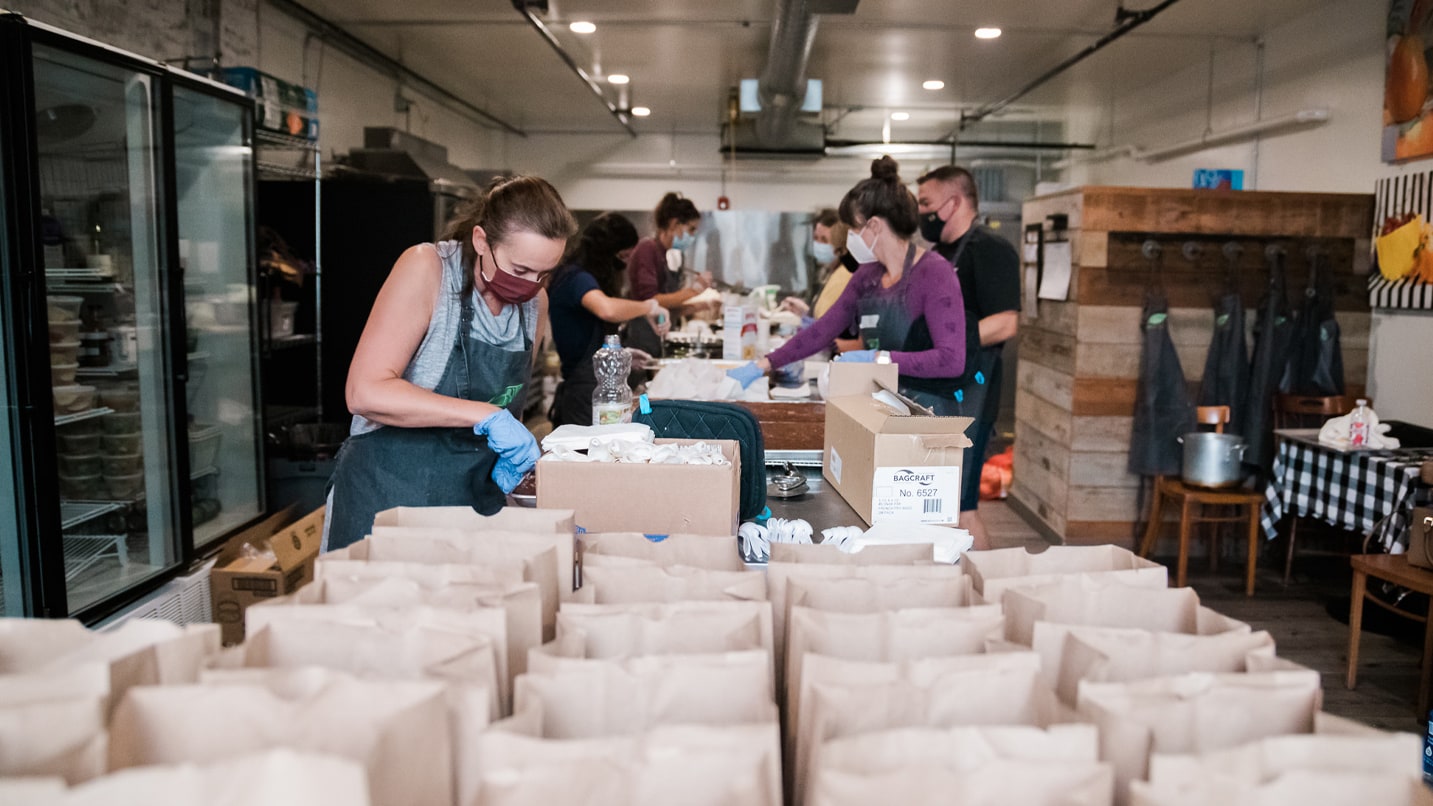
Feed the People
As Erin Cunning watched the Holiday Farm Fire rip through the McKenzie River communities east of her home of Eugene, she immediately knew how to help. She heeded the call to feed displaced residents and firefighters through her business, Erin’s Table — a commercial kitchen where she creates gourmet freezer meals and rents space to other small culinary businesses.
“I just saw they needed meals,” Cunning says. “I usually have a tenant in the kitchen on the weekends who does barbecue. He said, ‘I’m not coming in because of the smoke.’” So with the entire kitchen space to herself, Cunning called her friends in to roll up their sleeves and help out.
“We had 10 Instant Pots plugged in and we kept tripping the breaker, so we had them lined up in the hallway,” she describes. The evening was organized chaos but so satisfying that she decided to keep going. Cunning put up a message on Facebook and donations poured in.
In just under two weeks, between Sept. 11 and Sept. 24, Erin’s Table served more than 3,400 hot meals to firefighters and displaced families. More than 200 volunteers supported the work through donations and their own labor. “It is just really humbling,” Cunning recalls. “I couldn’t have done anything without the community rallying. It was nice to see people put their differences aside and come together to meet the need.”
Other restaurants in the area heeded the same call. In Molalla, the owners of Humble Pig Cafe fired up the kitchen to feed returning residents. Epilogue Kitchen & Cocktails in Salem closed its doors to instead focus on packing free meals for evacuees. And in Eugene-Springfield, Elk Horn Brewery, along with Pig & Turnip, stepped up to feed those affected by the fires. In Southern Oregon, one family turned their Mexican restaurant into a community relief center, providing supplies, food and temporary shelter for up to 300 residents. Medford’s FatKid Food Co. served more than 5,000 meals to displaced families at the Jackson County Expo for two weeks.
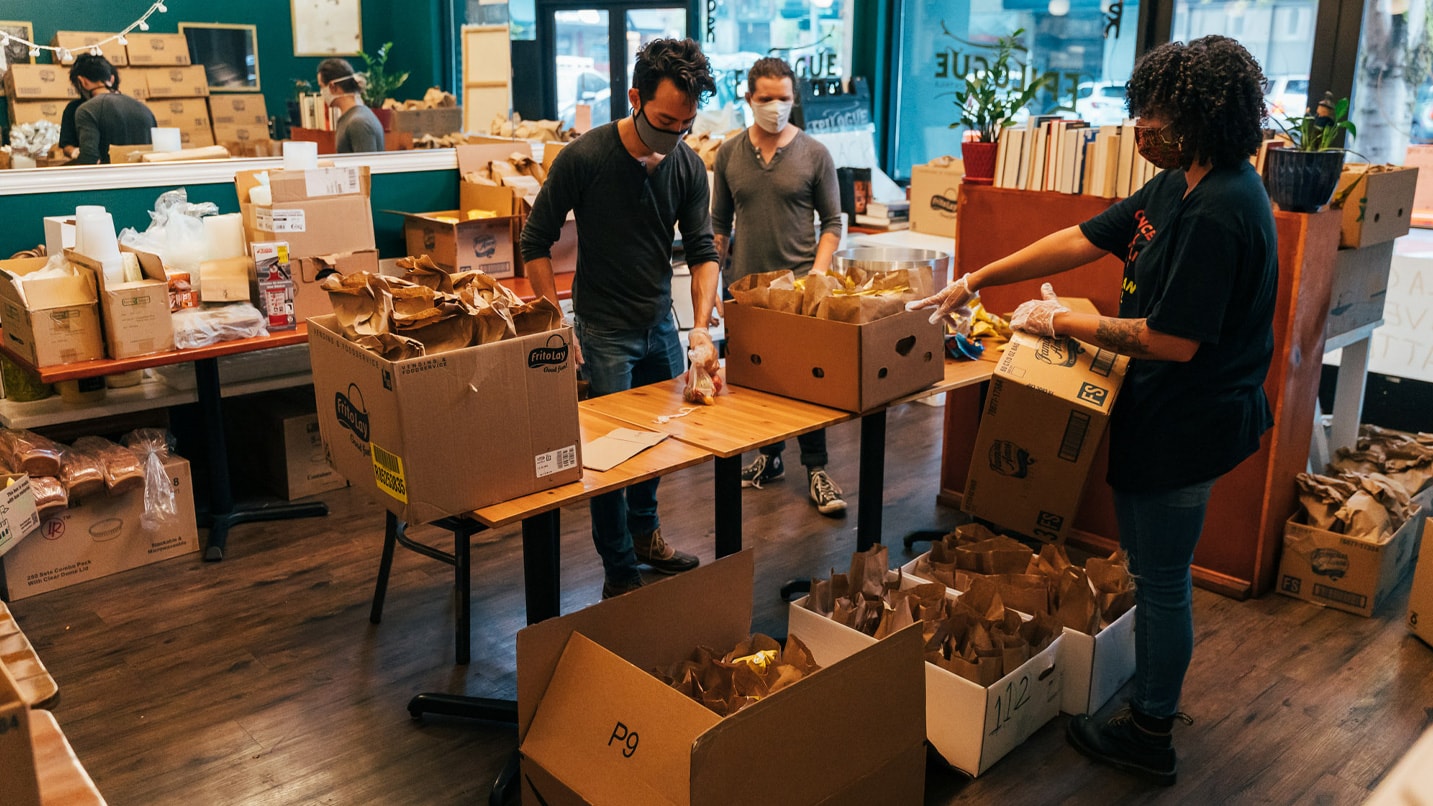
More Local Heroes
As the still-burning Oregon fires die down, even more stories of local heroes have begun to emerge.
Upper McKenzie fire chief Christiana Rainbow Plews lost her home in the town of Vida, east of Eugene, while she battled the Holiday Farm Fire. Her work evacuating residents and livestock saved many lives. Actor and talk-show host Drew Barrymore recognized her efforts with a surprise $10,000 check.
View this post on Instagram
A U.S. Forest Service staff member rescued an injured owl during evacuation.
Here’s a feel good story to brighten our days among the smoke & loss . . . LEO Felecia Sloan was doing evacuations yesterday & came across this injured owl. She was able to transport the owl to the Wildlife Center for injured wildlife in Corvallis. Looking for the silver linings! pic.twitter.com/uJUtZADuAU
— Forest Service NW (@ForestServiceNW) September 17, 2020
In the community of Harrisburg, just north of Eugene, a woman displayed her double-frontline duty as she took a break from her day job as an anesthesia assistant to battle the fires.
Get to know your #firefighters – Introducing Aleshia DeLanoy who works w/Harrisburg Fire Dept. & as an anesthesia assistant at McKenzie-Willamette hospital. She says her favorite part of firefighting is helping those in need. Thanks so much for your incredible work, Aleshia! pic.twitter.com/EK6chzquiv
— Forest Service NW (@ForestServiceNW) September 17, 2020
The owner of Golden Artisan Goat Cheese in Molalla moved her 85 goats to safety — using a trailer and a Subaru — during the Riverside Fire.
The owner of Goldin Artisan Goat Cheese in Molalla shared this photo with us ⬇️ 🚗🐐 showing how she got her 85 goats to safety last week, when the #RiversideFire forced them out of their farm. We’ll have her story on @fox12oregon at noon pic.twitter.com/671nPm2wSp
— Amber Wilmarth (@amberwilmarth) September 15, 2020
- Heritage Distilling Co. in Eugene-Springfield is matching hand sanitizer donations sales to relief organizations.
- A week after the Almeda fire destroyed Simple Machine, Talent’s first urban winery and tasting room, fellow Rogue Valley vintners pitched in with a ton of donated pinot noir grapes along with offers of equipment, barrels and winery space. To help Simple Machine rebuild, check out their “After Fire” wine club package, made with donated grapes — to be available or pickup or delivery in 2021.
- After the fires started, restaurant Ruddick/Wood in Newberg started working with World Central Kitchen (Jose Andres’ global mutual aid project) to supply more than 350 meals per day for front-line responders on the Molalla and Bald Peak fireline crews and potentially more as needed.
Read up on more examples of kindness in Oregon’s communities in the line of fire.
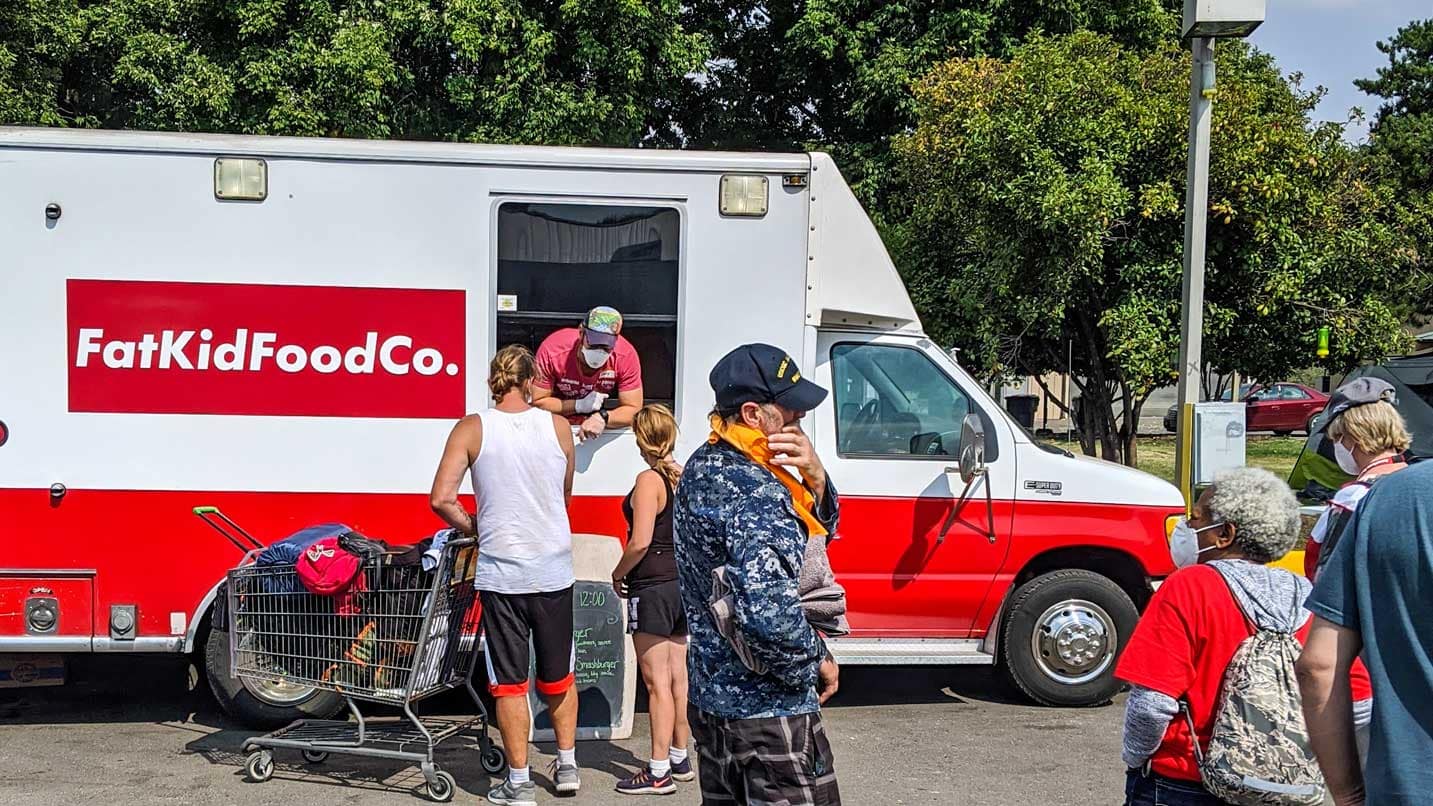
Coming Together In Crisis
Oregon’s food, wine and other industries have a long history of coming together to help lift each other up in times of crisis. In 2019, a group of Willamette Valley winemakers came together to produce a series of Solidarity Wine releases made with 150 tons of grapes from Southern Oregon’s Rogue Valley. The grapes from six small, family-owned vineyards had been left without buyers at the eleventh hour before harvest in fall 2018, following concerns about the impact of summer wildfires. The grapes were purchased at full market value, and net proceeds from the sales went to establish the Rogue Valley Vintners — a nonprofit membership organization to help boost those winemakers. On Oct. 1, the region came full circle and launched its own benefit, to support local families and industry members hardest hit by the Almeda Fire. Twenty-two local winemakers donated bottles for purchase to help an effort called Rogue Valley Wine Country Cares. For more ways to help support those in need, check for Ways to Help During Oregon’s Wildfires. Before you visit, check our Travel Alerts for the latest wildfire conditions and updates.
